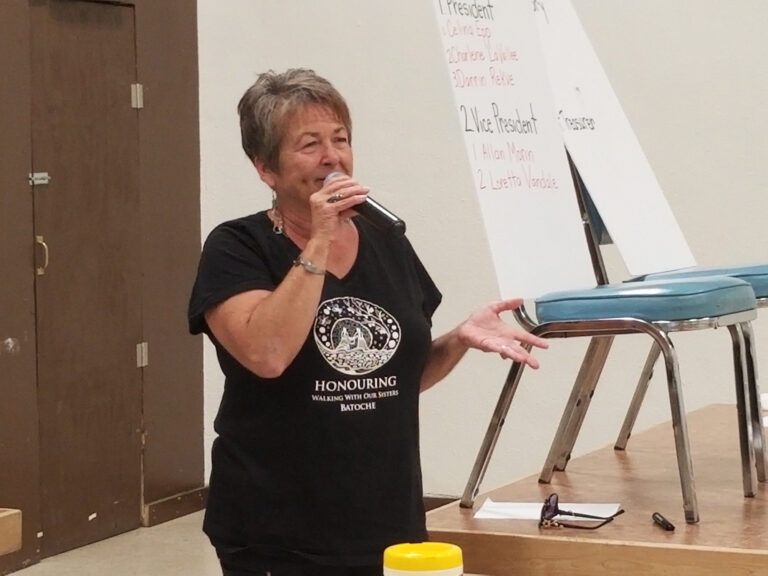
The Coalition of Aboriginal Peoples of Saskatchewan hopes to chart a new path to a better future, but they’ll start by reaching back into the past.
The organization formally announced plans to change their name to the Association of Métis and Non-Status Indians of Saskatchewan (AMNSIS) during their annual general meeting on Aug. 23. The name hasn’t been used since 1984, when the old AMNSIS organization split into two groups. The organization plans to alter the name to replace the term “Indian” with “Indigenous” as soon as possible.
Outgoing president John Hanikenne said it’s important to acknowledge the past, even as the organization grapples with new challenges.
“Those groups have always been getting smaller and smaller and smaller, until there’s only a few people holding the pot,” Hanikenne explained. “That (name) is a way of honoring our past, and bringing it back.”
Incoming president Charlene Lavallee said they want to focus on unity moving forward, and the old name will help them do that.
“That’s one of the things I’m really going to be pushing for,” she said. “Enough of the division. Enough of the dividing of our nations.”
Most of those new challenges the organization faces start with Indigenous youth. Charlene Lavallee said young people are “floundering” and need more support. She was impressed with musician Tristen Durocher, who walked 635 km to Regina to raise awareness about youth suicide. Durocher has also called for more action from the provincial government on the issue, but Lavallee said organizations like AMNSIS need to step up and do their part too.
“We have kids who just see hopelessness,” she said. “We need to give our kids hope again. That’s the first thing.”
Organization members voted in favour of creating a new provincial youth council to help address this and other issues. They also voted to create a new elders’ council. Planning for both groups is still in the early stages.
With her election, Lavallee becomes the first woman to lead the newly revived AMNSIS. She’s excited about the opportunity, and eager to make headway on important issues like youth suicide.
“I’m just really looking forward to being a force to be reckoned with,” she said.
Outgoing president John Hanikenne said he was proud of his work during the last four years, but didn’t run for a second term in office. Instead, Lavallee defeated Celina Epp and Darrin Revke in an election.
“There’s a thin line in our community between serving our people and owning (them),” Hanikenne said afterwards. “Too often our leaders in our community own those organizations. It’s done behind closed doors (with) family members. That is my reason for serving, and leaving.”
Hanikenne was one of four new board members elected during the meeting, so he’ll still be involved in the organization. He believes the new leadership team of Lavalllee, vice-president Allan Morin, secretary Celina Epp and treasurer Loretta Vandale will be strong advocates for the community.
“If we remain inclusive, we’ll be the biggest Aboriginal organization in Canada,” he said.
